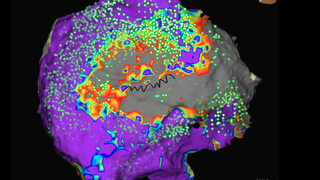Combining attentive, compassionate care with our extensive clinical and research resources, UT Southwestern's cardiology experts and vascular specialists deliver individualized care within pre-eminent health care facilities.
Atrial Fibrillation
New Patient Appointment or 214-645-8000
MedBlog
Results: 2 Locations
Clinical Heart and Vascular Center
at West Campus Building 3 2001 Inwood Road, 5th FloorDallas, Texas 75390 214-645-8000 Directions to Clinical Heart and Vascular Center at West Campus Building 3, Dallas Parking Info for Clinical Heart and Vascular Center









